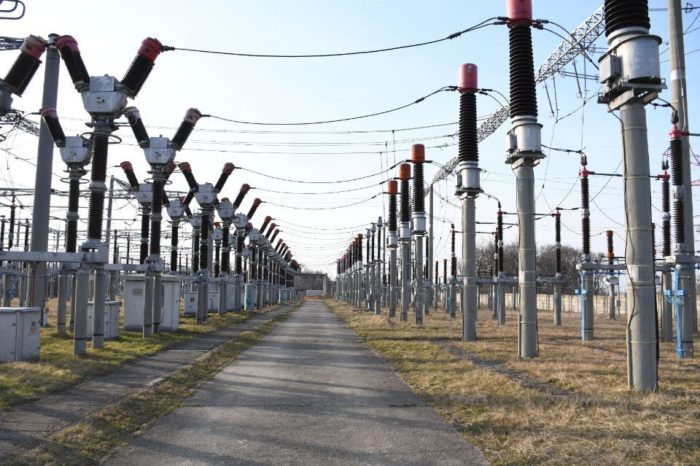Coal-fired power plants bounce back to boost Nigeria’s electricity supply

Solomon Ezeme
The private sector players have galvanised resources to support Nigerian government’s policy initiatives for the rapid exploitation of the country’s use of its abundant coal deposits, estimated at 2 billion metric tons, to boost electricity supplies.
The growth trajectory will see multiple coal powered plants coming into operation by 2034 while early arrivals will be commissioned sometime next year.
This is coming at a time when Nigeria’s increasing population of 200 million people can no longer be sustained through gas fired plants and hydropower sources.
EnergyDay’s check showed that there are more than seven coal power plants projected to take off in Nigeria within the next 10 years.
One of them is the Itobe coal-fired power project, with a nameplate capacity of 2,400 MW, in Kogi state. The project, which is expected to be developed in multiple phases, is currently in the permitting stage.
EnergyDay gathered that the plant, jointly owned by the Powerchina International Group and Zuma Energy Nigeria, has advanced to the post-completion stage and is due to be commissioned later in 2022 or early 2023.
Others are the 64MW Ashaka coal plant, proposed to be completed by 2034; the 1000MW Ramos coal plant, expected to be completed by 2034; the 500MW Ashaka/TPGL with an Estimated Date of Completion (EDC, 2034); the 500MW Nasarawa coal power (2034); the 1200MW Benue coal power expected in (2037) and the 2000MW Enugu coal power (2037).
Bringing back abandoned coal sites in Nigeria would help the nation in the areas of electricity generation, transportation, cement manufacturing, and revenue generation through exports.
In the 1960’s, coal was heavily used by Nigerians for most parts of their economic activities until 1972, when consumption began decreasing steadily. This can be attributed to the discovery of newly found alternative energy sources by the country, specifically crude oil and its derivatives.
Nigeria’s interest in both the domestic use and export of coal has significantly declined since the discovery of crude oil in 1956, at Oloibiri, Bayelsa.
Production of crude oil in Nigeria began in 1957, and in 1960 a total of 847,000 tonnes of crude oil was exported. Since then, the nation has shifted focus to crude oil and its products and exports, especially as a primary source of revenue to fund capital projects across the country.
This abrupt shift has in turn created multiple complications for the country in terms of energy choices and economic management of resources.
EXPERTS’ REACTIONS
Experts who spoke with EnergyDay on the backdrop of the growing need by the country to address its energy deficiency and poverty and provide socio-economic development.
The industry experts however observed that the Nigerian Coal Corporation (NCC), an agency of the government that supervises the mining and export of large quantities of coal that generated so much revenue for Nigeria in the 60’s, currently has little role it is playing in the country’s energy industry.
In a chat with EnergyDay, Prof. Nuhu Obaje, a Geologist and the Director, Centre for Applied Sciences and Technology Research (CASTER), noted that the country needs to quickly take advantage of the recent flexibility of the West on fossil fuel usage, to explore and make use of all available energy sources, particularly coal, which was abandoned for crude oil.
He described it as a “good development for Africa” and an opportunity for Nigeria to resuscitate the coal and solid minerals sector to help channel the nation on the path of industrialization.
It’s better we use coal, it is abundant here. “We should see it as an opportunity to revive coal and even develop our oil and gas sector, particularly by exploring more crude oil in the basics,” he noted.
Obaje stressed that it was imperative for every nation to preserve its national interest, noting that Nigeria had to harness its huge coal reserves, as well as oil and gas resources. The country must first resolve its energy crisis before moving towards achieving net-zero goals. “The climate must be preserved, nonetheless, people must also survive.” ”
We need energy and coal for our economy to survive. We need to survive first, “he noted.
He bemoaned the dearth of a private-sector driven economy in Nigeria, as he identified inadequate electricity supply as a major reason for its decline.
He claimed that success could be achieved in both the coal and oil and gas industries if the government would address the challenges of electricity and insecurity, to help create an enabling environment for private businesses to thrive.
Obaje said, “Most businesses here used to be private-sector driven, not privatized.” But they couldn’t operate in Nigeria again because the electricity they used to get was no longer available.
“Without power, you cannot have the coal and oil & gas industries functioning properly.” The power sector must first be fixed, and all available energy sources in the country must be put to use. Without power, we would only be joking. ”
Tope Fasua, Founder, Economist/Public Policy Expert, and CEO of Global Analytics Consulting Limited, told EnergyDay that, despite the recent glamour of decarbonization and net-zero emissions, the international community has yet to completely abandon the use of coal.
We will be so unfair to ourselves if we take the advice of the West. What is wrong with using the coal in Enugu?”
As we speak today, the United States and almost the whole of Europe, not to mention China and India, are still using coal. Some of them have increased the utilisation of coal. Why are we so dependent on only one source of energy? ” He noted.
He, therefore, advised the Federal Government to revive coal sites in Enugu, Kogi and other states, noting that, besides the expert potential of coal, the mineral would be more useful to companies using sophisticated machines.
He emphasized that Nigeria needs to look beyond crude oil, explore and embrace coal and other sources of energy, to be self-sufficient in terms of meeting its energy needs.
“We currently run an import-based economy, which is never sustainable. We need to work around that. We need to press in all the energy sources we can find.”
We need to go back to the coal in Enugu and wherever else it can be found in the country.” We can shut them down, “he said. Mr. Amos
Odubanwo, Anthracite Coal Consultant, an energy expert, said Nigeria has no reason to leave its coal reserves unused in the face of ending the energy crisis rocking the nation and the rest of the world.
He said, “As we speak today, the United States and almost the whole of Europe, not to mention China and India, are still using their coal. Some of them have increased the utilisation of coal. Why are we so dependent on only one source of energy?”
“We need to go back to the coal in Enugu and wherever else it can be found in the country.” We can’t afford to shut them down at this critical time when all other energy sources are not delivering our energy needs, “Odubanwo said.
He urged the government to develop policies that would help to revive the coal mines across Nigeria, with a specific focus on the huge coal reserves in Enugu State.
According to him, reviving the coal plants as one of the energy sources in Nigeria will go a long way to improving the country’s access to power in the face of rising prices of petroleum products and supply shortages arising from the Russia/Ukraine war. He,
therefore, advised the Federal Government to revive coal sites in Enugu, Kogi and other states, noting that, besides the export potential of coal, the mineral would be more useful to companies using sophisticated machines.
The experts, however, emphasised that Nigeria, with an estimated 2 billion metric tonnes of coal in reserve, has the potential to supply complementary energy to the available hydro/thermal solution.
They also noted that members of the international community, including countries in the West that have been unwilling to fund fossil fuels or hydrocarbon projects, have reactivated their coal plants in various locations and sites, solve their energy crisis, advance economic growth and development.







